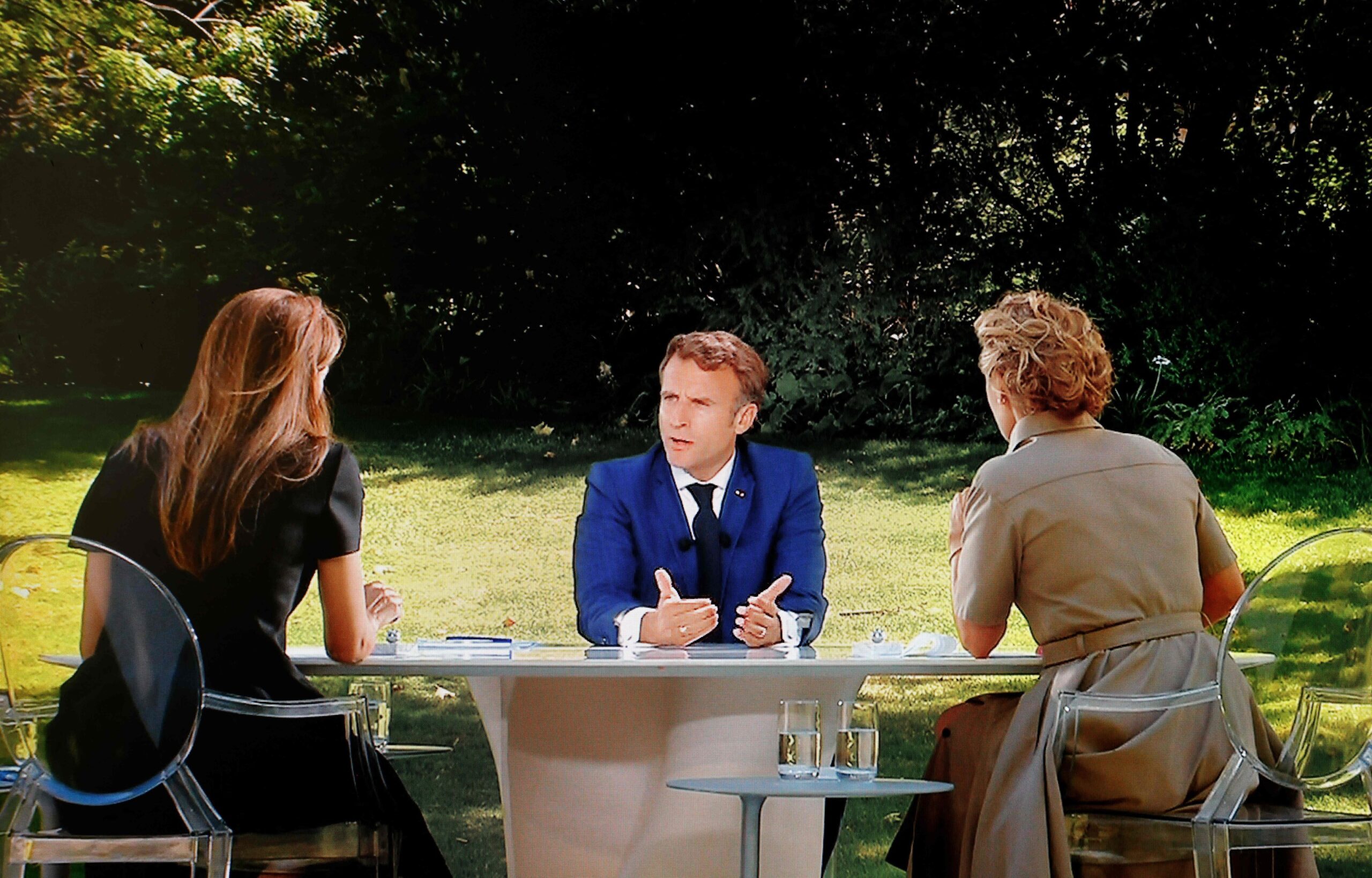Macron has called for the “collective responsibility” of the French, so that they “save” and thus reduce energy consumption, in a context marked by the Russian decision to cut off gas to several European countries.
In his first television interview since he was re-elected last April, and coinciding with the celebration of the French national holiday, the president has warned that the war in Ukraine “will last”. “Summer and autumn will undoubtedly be very difficult,” Macron predicted, assuring that the country is in a position to help Ukraine.
For the president, the real “change” in the course of the war has been Moscow’s decision to start cutting gas, which shows that “Russia is using energy as a weapon of war.” “We must prepare for a scenario in which we do not depend on Russian gas,” Macron said, shortly before announcing that the government will present an “energy sobriety” plan this summer. A “general mobilization is necessary. First, the States, then all the others”, he continued. According to the president, France, like other European countries, is diversifying its market to look for gas in other places and be able to expand its stock.
In response to questions from journalists Caroline Roux (France 2) and Anne-Claire Coudray (TF1) about his government’s priorities, Macron pointed out that “full employment” will be at the center of the “battle”.
Macron’s interview takes place shortly after the traditional parade for July 14, marked by the war in Ukraine. The choice of this moment responds to a tradition inaugurated by President Valéry Giscard d’Estaing in 1978 and continued by both Mitterrand and Chirac. Other leaders, such as Sarkozy, refused to do it, just as Macron did during his first term.
This year, the motto of the parade is “Share the flame”, a reference to the bond between the army and the nation as well as a nod to the flame of the Resistance and the Olympic flame, of which France is the guardian until the next celebration of the 2024 games.
The war between Ukraine and Russia was reflected in the presence of troops from the nine invited countries, most of them neighboring Russia or Ukraine (Estonia, Lithuania, Latvia, Poland, the Czech Republic, Slovakia, Hungary, Romania and Bulgaria), accompanied by 135 French soldiers deployed on the eastern flank of Europe, as part of the NATO mission to reinforce security in the area after the start of the war, last February.
On a stiflingly hot day in France, a total of 6,300 soldiers – in addition to 180 vehicles and 200 horses – paraded through Paris, while 64 planes, 25 helicopters and a remote-controlled drone flew over the sky of the capital.
Macron acknowledged yesterday that the country must “improve our ability to deal with the prospect of a possible return of a high-intensity conflict.” He did it during the traditional reception offered by the Ministry of Defense on the eve of the National holiday, in which he expressed his desire to adapt the budget of the French military and commissioned the elaboration of a new Military Programming Law (LPM) .
Conforms to The Trust Project criteria
















